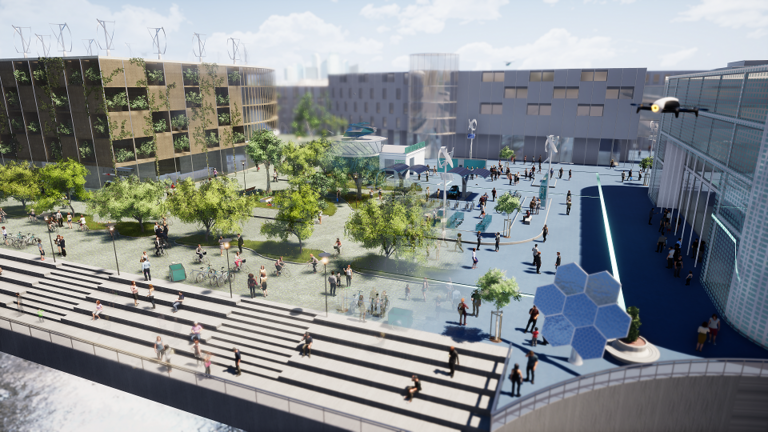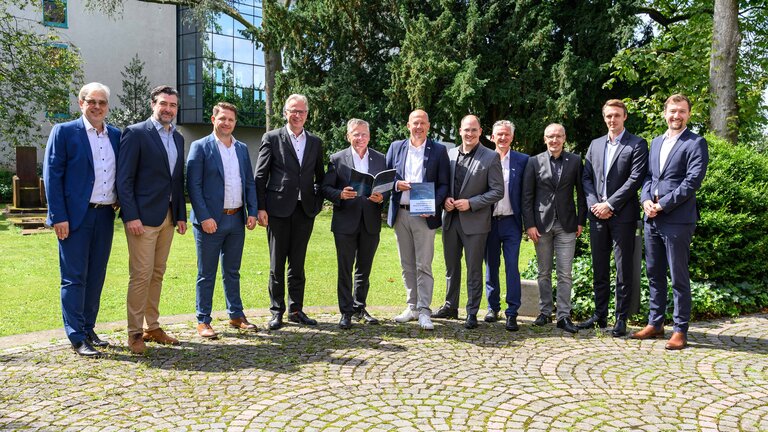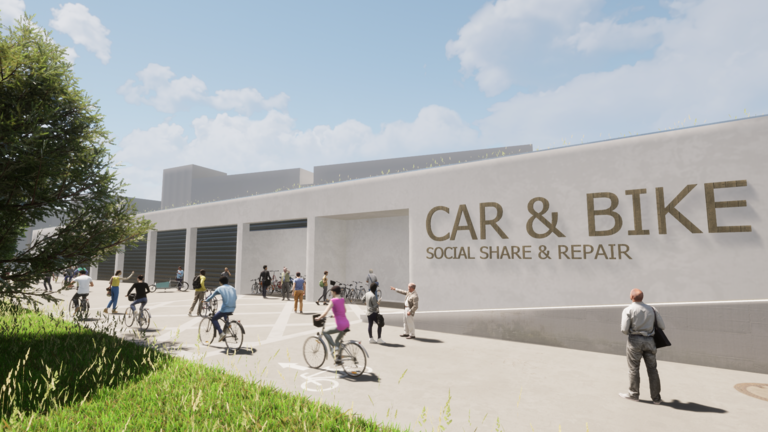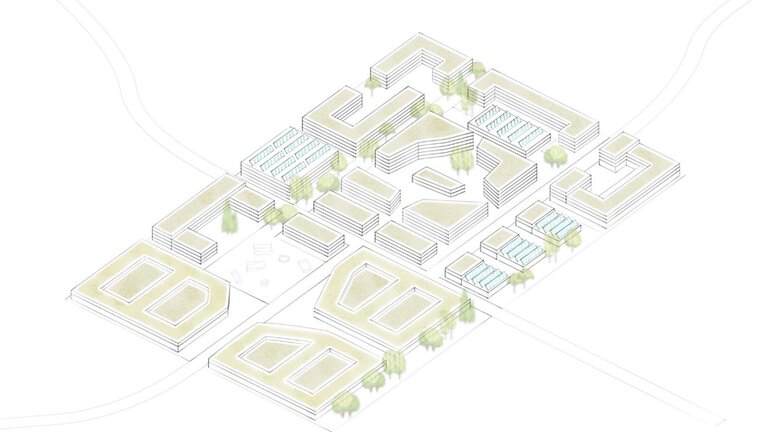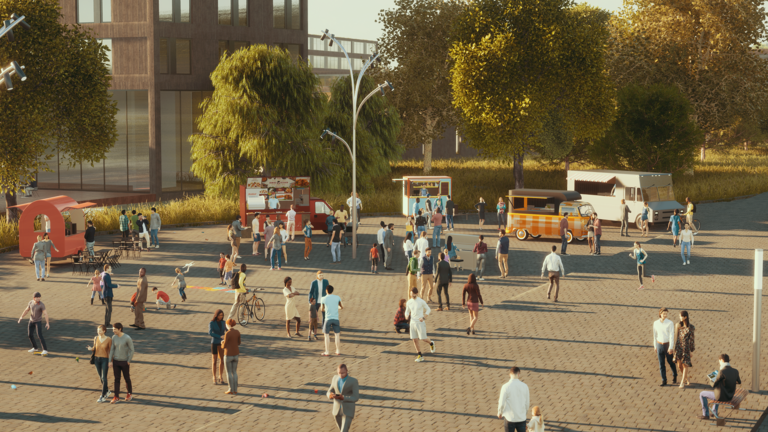Structural change is an issue that concerns the German federal state of North Rhine-Westphalia more than almost any other topic. With almost 18 million inhabitants, North Rhine-Westphalia is the most populous and most densely populated federal state in Germany. Consequently, the demand for digital services is enormous: up to 60 million users within a radius of 250 kilometers in and around the Rheinisches Revier (theRhenish Mining Regionwest of Cologne in North Rhine Westphalia) are already calling for more data infrastructure. With the aim of accelerating structural change and establishing the region as a leading digital zone, the Rhine districts of Neuss and Rhein-Erft have conducted a study to examine the option of realizing digital parks. The masterplan for digital parks, prepared by the consulting firm Drees & Sommer, which specializes in construction and real estate, and Düsseldorf-based NMWP Management GmbH, illustrates the potential of such a digital region and lays down the measures that need to be taken. Digital parks could create up to 2,500 new jobs in each of the two districts. The next step is to identify suitable areas in the districts and to initiate project implementation.
"The digital parks that we envisage for the Rhein-Erft and Neuss districts do not yet exist in Germany in terms of the functions they would provide: due to the special location where two supra-regional data routes intersect, we are focusing our development work on digital parks that benefit from the direct proximity to a hyperscale data center and a data hub," explained Frank Schnitzler, who is part of Drees & Sommer’s project team. The background to this is that the Rhine districts of Neuss and Erft in particular offer an ideal basis for developing a digital region with international appeal.
"With regard to structural change, digital parks offer a tremendous opportunity for regional economic development," emphasized Hans-Jürgen Petrauschke, District Administrator of the Rhine district of Neuss, when the results of the master plan for digital parks were presented in August 2023. Frank Rock, his colleague from the Rhein-Erft district, added: "To achieve the transformation, we need innovative and sustainable approaches to value creation that will lead to future-oriented jobs and apprenticeships. The digital parks will provide platforms for networking between representatives of the economy, the world of science and citizens.“
With this in mind, the project team of Drees & Sommer and NMWP looked at the framework conditions in both districts that are of key importance for successfully developing digital parks. The 180-page report, which was funded by the federal state of North Rhine-Westphalia, focuses on new, innovative and, above all, sustainable approaches to value creation leading to future-oriented jobs and apprenticeships. The authors of the study developed different thematic approaches to the specialization of the two digital parks. They developed clusters of themes that form the basis for attracting companies. The area structures were designed by combining the clusters of themes and the usage components in conjunction with the forecast area requirements in an idealized space model. The master plan intentionally does not explicitly name a specific location for developing digital parks. “Instead, we have analyzed several focus areas in the region in order to assess their potential for such developments and documented our results in the form of location profiles. The results of this study form the basis for further activities in the context of the development of digital parks in the two districts in the near future,“ explained project team member Martin Altmann from Drees & Sommer. The digital parks will also serve as a flagship for sustainability because of many key features and activities.
The districts intend to implement their plans in the near future. A presentation of detailed studies and further site examinations is scheduled for mid-2025. All issues in relation to planning rights, financing, management and tender awards have to be clarified by the end of 2027, prior to the start of construction in 2028.
For more information please see our press release.
To view the entire report (in German), please visit: Masterplan Digitalparks im Rhein-Kreis Neuss und Rhein-Erft-Kreis
